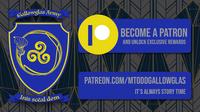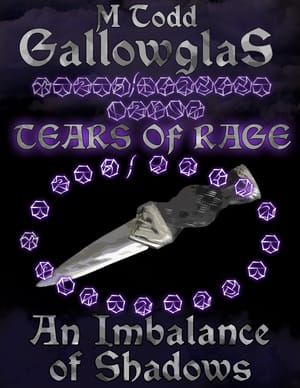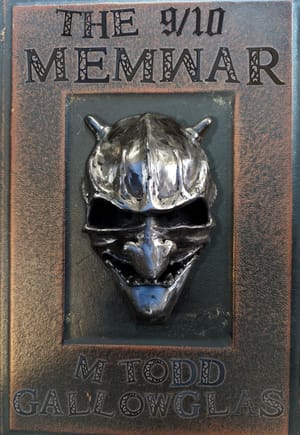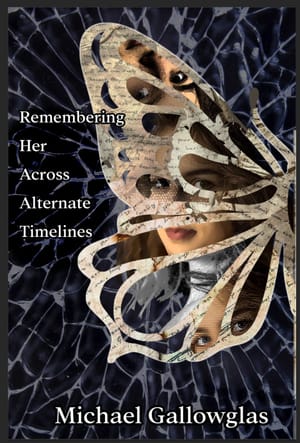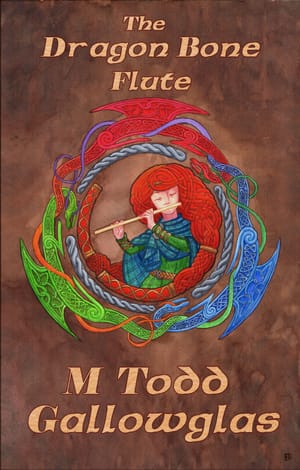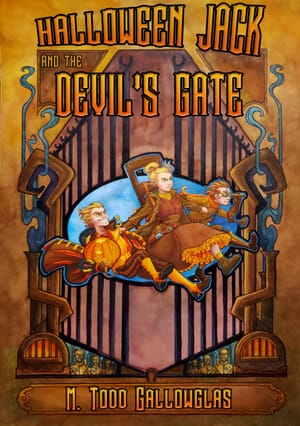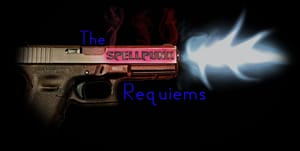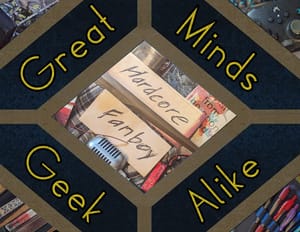Badder than Bad
I've let some ideas stew in my mind over this last weekend, sometimes on the back burner, sometimes right up front. One time, I almost jumped out of bed near midnight to make a post. But that was at about midnight, and I had to work the next morning. I contemplated putting some of it down and saving it for later, but I kinda felt that I had to get this all out at once; otherwise, it would come out all disjointed.
I'm going to continue tying the pitfalls of fantasy fiction and role playing games together, and how a beginning writer can learn a lot about the craft of constructing fiction by studying role playing games. When last I left you, I had espoused the concept of realism in Fantasy.
Yeah.
I know.
Oxymoron.
But not. Really not.
The truth is, if a writer is going to write engaging fantasy, the writer must ground at least some of his or her work in some aspect of reality. If not, the writer is likely, sooner or later, to lose his or her audience's willingness to suspend their collective disbelief and keep going along for the ride -- more often than not, this loss usually comes sooner rather than later.
Then where do we find this realism in a genre that strives to escape the bounds of reality? How can we give the reader something real to latch onto when the massive scope of our imaginations is up for grabs? First and foremost, we have to start with the characters. The people that populate the multitudes of worlds that exist in the infinite possibilities that fantasy provides for us must be real people. In someways, they must be hyper-real people. Fantasy fiction is filled with stereotypical characters, most of the time having to do with where they stand on the morality scale of good and evil, light and dark. While many of the great fantasy novels deal with the battle between good and evil, the characters within these great novels are rarely at one extreme or another. Yes, many novels or stories do have characters that are wholly good or wholly evil, but we can hardly consider works with such characters as great.
I ran a game that opened with three characters with very little memory come into themselves at an abandoned, two-story house in the modern-day San Francisco Bay Area. One of the characters has a folder naming her the beneficiary in a will. The three characters decide to explore the house. Eventually, they make their way upstairs and find a wooden case that contains an old-fashioned, single-shot dueling pistol... made of bone. It seems a solid piece, yet the trigger and hammer move.
The discovery of this weapon led to almost an hour of hilarity as the players, and thus the characters tried to figure the thing out. At a later point, we were recounting this gaming session to an acquaintance who was also a gamer. (Gamers love to talk about the adventures their characters have as if the players themselves actually lived the experiences.) This friend interrupted the story, saying that had he been playing, his character would have just pointed the gun at another character's head and pulled the trigger. Just to see what happened. We asked why. He replied, "I like playing evil characters."
So much of fantasy fiction is peppered with this kind of character: the vile, despicable character who does nasty things to people merely for the sake of doing nasty, vile, reprehensible things. In gaming, I suspect people play this kind of character because they feel they feel powerless and beaten down in the real world, and they wish to lash out at it, or they suffer from some deep insecurity, or I could just be blowing smoke based on some half-recollected memories of these kinds of characters. The biggest problem with his kind of character is that: while the shock value of the character's first few nasty deeds may get the readers' attention and make them wonder how the hero is going to deal with this baddie, rarely are such villains engaging over the course of a novel or series of novel.
I have to admit, I really enjoy playing villainous characters, but there is a huge difference between villainous and evil. The world is full of bad people who do horrible things. Vary rarely are these people doing horrible things out of some sense on fundamental morality. Some people are wired wrong, sociopaths etc... but they are rare. To be truly villainous, someone has to understand humanity on some level and have a massive self-preservation instinct. Otherwise, said individual (or character) is unlikely to remain free for very long, and in the long run, as I previously stated, not much fun to read about over the long hall.
How do we overcome this as writers? Make your villains human. Give them human motivations for the things they do far removed from just being the high priest of an evil god or the ever-popular unquenchable thirst for power. Give them things they truly care about and weaknesses the hero, or other characters, can exploit. Two of my favorite example of a villainous characters are Jaime Lannester from George RR Martin's A SONG OF ICE AND FIRE, and the character Hrahten of Brandon Sanderson's debut novel ELANTRIS. I won't eve begin to touch on Jaime, because that particulate character study could erupt into being my control very quickly, so I'll speak of Hrathen. Hrathen is a religious zealot, a high ranking priest of his religion sent to spearhead an invasion of a foreign kingdom -- a theme common in many fantasy novels. However, Hrathen is different in that he's not a zealot because his heart bursts with the purity of faith; rather, his religion makes logical sense. I found this approach a fresh change. Not only that, he understands that other members of his religion do possess great passion for their faith. He is jealous of these people and interacting with them gives him moments where he doubts and questions himself. Because of Sanderson's fresh take on this theme, Hrathen's story arch is at least as engaging as the hero's.
In an upcoming post, I plan to discuss the flipside of this issue: The character who is saintlike in his goodness.

